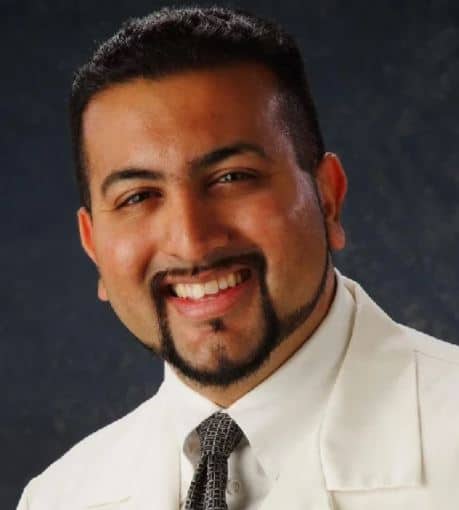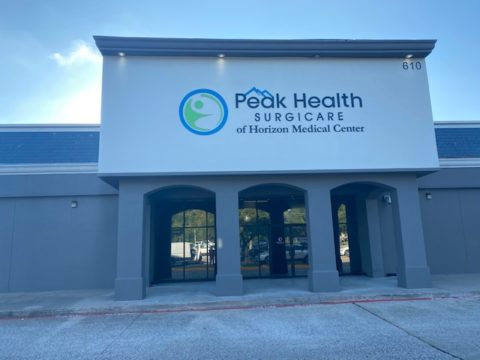Dallas Gastric Sleeve and Bariatric Surgery Experts
Cutting edge bariatric procedures for DFW
Peak Bariatric: #1 in DFW for Bariatric Surgery
Peak Bariatric in Dallas, Texas is a leading provider of weight loss surgery for individuals struggling with obesity in the Dallas area. Our team of skilled surgeons and healthcare professionals offer a range of bariatric surgery options, including gastric bypass, hernia repair, gastric sleeve gastrectomy, and adjustable gastric banding, to help our patients in Dallas and the surrounding communities achieve their weight loss goals and improve their overall health.
At Peak Bariatric in Dallas, we understand that weight loss surgery is a major decision and we are here to support our patients every step of the way. We offer comprehensive pre- and post-surgery care, including nutritional counseling and support groups, to ensure that our patients have the tools they need to achieve long-term success.
If you are interested in learning more about bariatric surgery as a treatment option for obesity in the Dallas area, we encourage you to contact us to schedule a consultation with one of our experienced surgeons. Together, we can determine if bariatric surgery is the right option for you and help you take the first step towards a healthier, happier future.
Bariatric Treatments
Before & After


Bariatric Surgery Information

What Is a Duodenal Switch?
Understanding Duodenal Switch Surgery Obesity has become a global epidemic affecting millions worldwide. Carrying excess weight puts individuals at higher risk for numerous health issues

Losing Weight Without Surgery: A Guide to Non-Surgical Weight Loss Options
Obesity has become an epidemic, with over 40% of adults in the United States considered obese. Carrying excess weight can increase the risk for many

Gastric Bypass Surgery: Everything You Need to Know
Gastric bypass is considered one of the most effective weight loss surgeries available today. In this procedure, a surgeon creates a small pouch from the

Risks and Benefits of Bariatric Surgery
Introduction Bariatric surgery refers to a variety of weight loss surgical procedures that are performed on people who are obese. The purpose of bariatric surgery

different types of bariatric surgery: What’s right for you?
Introduction Bariatric surgery refers to a variety of surgical procedures performed to help people with obesity lose weight. These surgeries alter the gastrointestinal system by
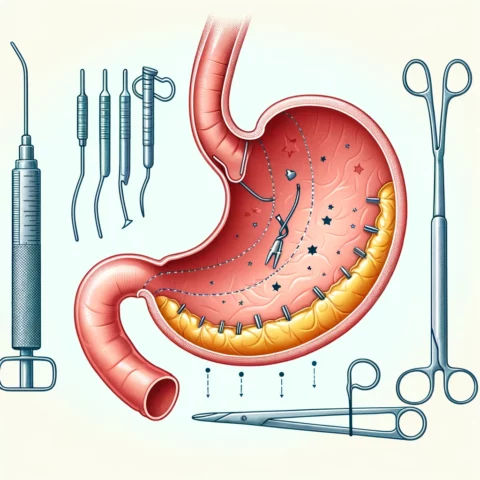
Gastric sleeve surgery: A comprehensive guide
Introduction Gastric sleeve surgery, also known as sleeve gastrectomy, is a popular weight loss surgery that involves removing a large portion of the stomach to

Why Bariatric Surgery is More Than Just a Weight Loss Tool
Bariatric surgery is often perceived as just a weight loss tool, but it is so much more than that. This life-changing procedure can dramatically improve

A Deep Dive into the Vertical Sleeve Gastrectomy
The vertical sleeve gastrectomy has rapidly become one of the most popular weight loss surgeries over the past decade. This procedure, also known as the

The Role of Vitamins and Minerals After Weight Loss Surgery
Weight loss surgery leads to dramatic changes in a person’s physiology and nutritional needs. Procedures like gastric bypass and sleeve gastrectomy reduce the size of
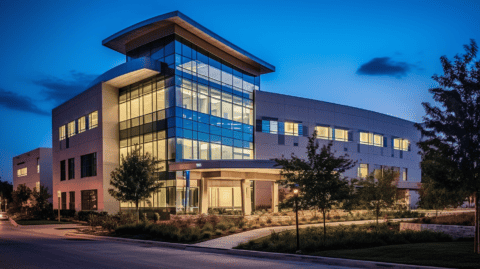
Bariatric Surgery: Impact on Diabetes and Cardiovascular Health
Bariatric surgery, often regarded as a last resort for those battling obesity, has been proven to offer significant health benefits beyond weight loss. Notably, its

The Science of Satiety: How Bariatric Surgeries Impact Appetite
Bariatric surgeries, a term that encompasses a range of procedures aimed at assisting individuals in achieving significant weight loss, have seen a surge in popularity
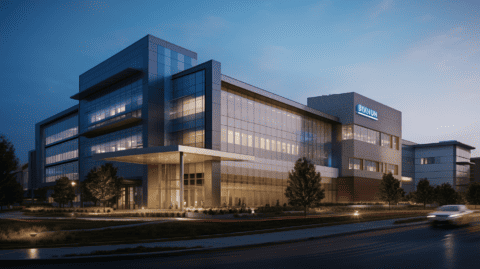
Role of Dallas Clinics Advancing Bariatric Surgery
Dallas, Texas, a city renowned for its vibrant culture and rich history, has also emerged as a leading hub for medical advancements, particularly in the

The Growth of Bariatric Surgery in Dallas: Trends and Predictions
In recent years, the popularity of bariatric surgery has seen a significant increase, particularly in Dallas, Texas. This surge can be attributed to several factors,

Latest Technological Advancements in Bariatric Surgery
In the ever-evolving field of medicine, bariatric surgery has seen significant technological advancements that have made procedures safer, more effective, and more accessible for patients.

The Emotional Journey After Bariatric Surgery: Coping Strategies and Support
After deciding to undergo bariatric surgery, a person embarks on a journey that goes beyond the physical transformation. The emotional journey after bariatric surgery is

Exercise After Bariatric Surgery: Safe Routines and Recommendations
Undergoing bariatric surgery is a life-changing decision and a significant step towards a healthier lifestyle. However, surgery alone is not enough to maintain long-term weight

Bariatric Surgery Qualifications, Certifications, and What They Mean for Patients
In the world of healthcare, the importance of qualifications and certifications cannot be overstated. These are the credentials that ensure the professionals you entrust with

Insurance Coverage for Bariatric Surgery: Navigating the Fine Print
At the crossroads of dreams and practicality lies the realm of bariatric surgery. For many, it represents hope, transformation, and a step towards a healthier

Financing Your Surgery: Available Options and Tips
Bariatric surgery is a transformative journey, one that can significantly improve the quality of life and overall health. However, the financial aspect of this journey

Post-Operative Nutrition: Eating Right After Bariatric Surgery
Bariatric surgery is a transformative journey, not just for the body but for one’s entire lifestyle. At the heart of this transformation is nutrition. Post-operative

Understanding the Pre-Surgery Diet for Bariatric Patients
Stepping into the world of bariatric surgery is a brave commitment towards a healthier you. At Peak Bariatric, we aim to make this journey smoother
Understanding Bariatric Surgery
Understanding Gastric Sleeve Surgery for Weight Loss
Gastric sleeve surgery, also known as sleeve gastrectomy, is a popular method for weight loss in Dallas. The surgery is commonly performed on individuals with a body mass index (BMI) of 40 or higher, or with a BMI of 35 or higher and an associated health issue like diabetes or sleep apnea.
What is Gastric Sleeve Surgery?
During the surgery, a highly skilled gastric sleeve surgeon removes approximately 85% of the patient’s stomach. This results in a small, sleeve-shaped stomach that restricts food intake and promotes weight loss. The small intestine is then reconnected to the new, smaller stomach, allowing for normal digestion and nutrient absorption.
Typically, this surgery is performed laparoscopically, which is a minimally invasive method using small incisions and a camera. This method results in a quicker recovery period and less scarring than standard open surgery.
Gastric Sleeve Surgery Benefits and Costs
The benefits of gastric sleeve surgery extend beyond weight loss. Research shows that patients lose an average of 60-70% of their excess weight in the first year after surgery. Additionally, gastric sleeve surgery can lead to significant improvements in conditions like diabetes, sleep apnea, and hypertension.
It’s also important to consider the cost of gastric sleeve surgery. While costs can vary, there are options for affordable gastric sleeve surgery in Dallas, especially when considering financing and insurance options.
Gastric Sleeve vs Bypass
When compared to gastric bypass, another form of weight loss surgery, gastric sleeve surgery tends to have fewer complications and a quicker recovery period. However, both methods are effective for weight loss, and the choice between gastric sleeve and bypass will depend on the individual patient’s health conditions and the surgeon’s recommendation.
Gastric Sleeve Surgery Recovery and Potential Complications
Recovering from gastric sleeve surgery involves adopting a specific diet and progressively reintroducing physical activity. Patients usually return to normal activities within 3-5 weeks following the surgery.
However, as with any surgery, complications can arise from gastric sleeve surgery. These can include infection, bleeding, and blood clots. Nonetheless, the risk of complications is relatively reduced when the surgery is performed laparoscopically.
What to Expect: Before and After Gastric Sleeve Surgery
By looking at before and after photos of gastric sleeve surgery and reading testimonials and reviews, prospective patients can gain a realistic understanding of the possible outcomes. Overall, the results of gastric sleeve surgery are positive, with most patients experiencing a significant improvement in their quality of life.
Conclusion
Gastric sleeve surgery in Dallas is a highly effective method for weight loss that can lead to significant improvements in overall health. However, it’s important to remember that gastric sleeve surgery is not a quick fix and requires a commitment to lifestyle changes, such as a healthy diet and regular exercise.
Prospective patients can find support through gastric sleeve surgery support groups and can discuss their options for bariatric surgery in Dallas with a healthcare provider. Those who have struggled to reach their weight loss goals through diet and exercise alone may find gastric sleeve surgery to be a beneficial option.
Patients Frequently Ask
Q: What is gastric sleeve surgery? A: Gastric sleeve surgery, also known as sleeve gastrectomy, is a type of weight-loss surgery where a large part of the stomach is removed, leaving a smaller, tube-like “sleeve”. This procedure reduces the size of the stomach, limiting the amount of food you can eat and helping you feel full sooner.
Q: How is gastric sleeve surgery performed? A: Gastric sleeve surgery is typically performed laparoscopically, which is a minimally invasive surgical technique. The surgeon makes several small incisions in the abdomen and inserts a laparoscope (a small camera) and surgical instruments. The surgeon then removes about 80% of the stomach, leaving behind a smaller, sleeve-shaped stomach.
Q: Who is a suitable candidate for gastric sleeve surgery? A: Candidates for gastric sleeve surgery typically have a body mass index (BMI) of 40 or higher, or a BMI of 35 or higher with serious weight-related health problems, such as type 2 diabetes, high blood pressure, or severe sleep apnea. However, the suitability of a candidate is determined on a case-by-case basis, taking into account the individual’s overall health, weight loss history, and commitment to lifestyle changes.
Q: What are the potential risks and complications of gastric sleeve surgery? A: As with any major surgery, gastric sleeve surgery carries potential risks, including infection, bleeding, and adverse reactions to anesthesia. Specific to the procedure, risks can include leaks from the cut edge of the stomach, blood clots, and nutritional deficiencies. It’s important to discuss these risks with your healthcare provider.
Q: What is the recovery process like after gastric sleeve surgery? A: Recovery from gastric sleeve surgery varies by individual. Generally, patients stay in the hospital for 2-3 days after the surgery. Full recovery can take several weeks. Patients will need to adhere to a specific diet to allow their stomach to heal and adjust to its new size.
Q: Will I need to follow a specific diet after the surgery? A: Yes, after gastric sleeve surgery, you’ll need to follow a specific diet recommended by your healthcare provider. This usually starts with liquids, then progresses to pureed foods, and eventually to regular foods, but in much smaller amounts than before surgery.
Q: How much weight can I expect to lose after gastric sleeve surgery? A: Weight loss varies by individual, but on average, patients may lose about 60% of their excess weight within two years of the surgery. It’s important to remember that the surgery is a tool to aid in weight loss and must be accompanied by lifestyle changes, including diet and exercise, for optimal results.
Q: Are there any long-term effects or considerations after the surgery? A: Gastric sleeve surgery can lead to significant weight loss, which can improve or resolve obesity-related conditions such as diabetes, high blood pressure, and sleep apnea. However, it also requires lifelong changes to diet and exercise habits. Some patients may experience nutritional deficiencies and may need to take vitamin and mineral supplements.
Q: What are the alternatives to gastric sleeve surgery? A: Other types of weight-loss surgery include gastric bypass and adjustable gastric banding. Non-surgical weight loss methods include lifestyle changes (diet and exercise), medications, and weight loss programs. The best approach depends on the individual’s health, weight, and personal preference.
Q: Will insurance cover the cost of gastric sleeve surgery? A: Coverage for gastric sleeve surgery depends on the specific insurance plan. Many insurance companies cover weight-loss surgery for patients who meet certain criteria, such as a BMI over
Pros and Cons of Weight Loss Procedures
| Aspect | Gastric Sleeve Surgery | Gastric Bypass Surgery | Gastric Balloon | Lap Band |
|---|---|---|---|---|
| Procedure | Removes a portion of the stomach to create a small, sleeve-shaped stomach | Creates a small stomach pouch and reroutes the small intestine to the new pouch | Inserts a balloon into the stomach to reduce the amount of food you can eat | Places an adjustable band around the upper part of the stomach to reduce the amount of food you can eat |
| Surgery Type | Minimally invasive | Minimally invasive | Non-surgical | Minimally invasive |
| Incision | Small incisions in the abdomen | Small incisions in the abdomen | Inserted through the mouth using an endoscope | Small incisions in the abdomen |
| Hospital Stay | Short | Short | No hospital stay required | Short |
| Recovery Time | Quick | Quick | Immediate | Quick |
| Weight Loss | Significant | Significant | Less significant than surgical options | Less significant than surgical options |
| BMI Criteria | 40 or higher, or 35 or higher with obesity-related health problems | 40 or higher, or 35 or higher with obesity-related health problems | 27 or higher with obesity-related health problems | 40 or higher, or 35 or higher with obesity-related health problems |
| Reduction in Hunger | Yes | Yes | Yes, temporarily | Yes |
Academic Research on Bariatric Surgery
Our Locations
Bariatric Resources
- The Effectiveness and Risks of Bariatric Surgery by Su-Hsin Chang, Carolyn R. T. Stoll, Jihyun Song, J. Esteban Varela, Christopher J. Eagon, Graham A. Colditz, published in 2014. This study examines the effectiveness and risks of bariatric surgery using up-to-date, comprehensive data and appropriate meta-analytic techniques. PDF Link
- First Report from the American College of Surgeons Bariatric Surgery Center Network by Matthew M. Hutter, Bruce D. Schirmer, Daniel B. Jones, Clifford Y. Ko, Mark S. Cohen, Ryan P. Merkow, Ninh T. Nguyen, published in 2011. This report analyzes data from the American College of Surgeons—Bariatric Surgery Center Network accreditation program, and its prospective, longitudinal, data collection system based on standardized definitions and collected by trained data reviewers. PDF Link
- Long-term Follow-up After Bariatric Surgery by Nancy Puzziferri, Thomas B. Roshek, Helen G. Mayo, Ryan Gallagher, Steven H. Belle, Edward H. Livingston, published in 2014. This study assesses the quality of evidence and treatment effectiveness 2 years after bariatric procedures for weight loss, type 2 diabetes, hypertension, and hyperlipidemia in severely obese adults. PDF Link
- The clinical effectiveness and cost-effectiveness of bariatric (weight loss) surgery for obesity: a systematic review and economic evaluation by Joanna Picot, Jeremy Jones, Jill L Colquitt, Elena Gospodarevskaya, Emma Loveman, L Baxter, Andrew Clegg, published in 2009. This study assesses the clinical effectiveness and cost-effectiveness of bariatric surgery for obesity. PDF Link
- Bariatric Surgery: A Systematic Review of the Clinical and Economic Evidence by Raj Padwal, Scott Klarenbach, Natasha Wiebe, Maureen Hazel, Daniel W. Birch, Shahzeer Karmali, Arya M. Sharma, Braden J. Manns, Marcello Tonelli, published in 2011. This systematic review evaluates the clinical efficacy and safety, cost-effectiveness of bariatric surgery, and the association between number of surgeries performed (surgical volume) and outcomes. PDF Link
- Chang, S., Stoll, C., Song, J., Varela, J., Eagon, C., & Colditz, G. (2014). The Effectiveness and Risks of Bariatric Surgery. JAMA Surgery. DOI: 10.1001/jamasurg.2013.3654
- Hutter, M., Schirmer, B., Jones, D., Ko, C., Cohen, M., Merkow, R., & Nguyen, N. (2011). First Report from the American College of Surgeons Bariatric Surgery Center Network. Annals of Surgery. DOI: 10.1097/sla.0b013e31822c9dac
- Puzziferri, N., Roshek, T., Mayo, H., Gallagher, R., Belle, S., & Livingston, E. (2014). Long-term Follow-up After Bariatric Surgery. JAMA. DOI: 10.1001/jama.2014.10706
- Picot, J., Jones, J., Colquitt, J., Gospodarevskaya, E., Loveman, E., Baxter, L., & Clegg, A. (2009). The clinical effectiveness and cost-effectiveness of bariatric (weight loss) surgery for obesity: a systematic review and economic evaluation. Health Technology Assessment. DOI: 10.3310/hta13410
- Padwal, R., Klarenbach, S., Wiebe, N., Hazel, M., Birch, D., Karmali, S., Sharma, A., Manns, B., & Tonelli, M. (2011). Bariatric Surgery: A Systematic Review of the Clinical and Economic Evidence. Journal of General Internal Medicine. DOI: 10.1007/s11606-011-1721-x
- The Effectiveness and Risks of Bariatric Surgery by Su-Hsin Chang, Carolyn R. T. Stoll, Jihyun Song, J. Esteban Varela, Christopher J. Eagon, Graham A. Colditz, published in 2014. This study examines the effectiveness and risks of bariatric surgery using up-to-date, comprehensive data and appropriate meta-analytic techniques. PDF Link
- First Report from the American College of Surgeons Bariatric Surgery Center Network by Matthew M. Hutter, Bruce D. Schirmer, Daniel B. Jones, Clifford Y. Ko, Mark S. Cohen, Ryan P. Merkow, Ninh T. Nguyen, published in 2011. This report analyzes data from the American College of Surgeons—Bariatric Surgery Center Network accreditation program, and its prospective, longitudinal, data collection system based on standardized definitions and collected by trained data reviewers. PDF Link
- Long-term Follow-up After Bariatric Surgery by Nancy Puzziferri, Thomas B. Roshek, Helen G. Mayo, Ryan Gallagher, Steven H. Belle, Edward H. Livingston, published in 2014. This study assesses the quality of evidence and treatment effectiveness 2 years after bariatric procedures for weight loss, type 2 diabetes, hypertension, and hyperlipidemia in severely obese adults. PDF Link
- The clinical effectiveness and cost-effectiveness of bariatric (weight loss) surgery for obesity: a systematic review and economic evaluation by Joanna Picot, Jeremy Jones, Jill L Colquitt, Elena Gospodarevskaya, Emma Loveman, L Baxter, Andrew Clegg, published in 2009. This study assesses the clinical effectiveness and cost-effectiveness of bariatric surgery for obesity. PDF Link
- Bariatric Surgery: A Systematic Review of the Clinical and Economic Evidence by Raj Padwal, Scott Klarenbach, Natasha Wiebe, Maureen Hazel, Daniel W. Birch, Shahzeer Karmali, Arya M. Sharma, Braden J. Manns, Marcello Tonelli, published in 2011. This systematic review evaluates the clinical efficacy and safety, cost-effectiveness of bariatric surgery, and the association between number of surgeries performed (surgical volume) and outcomes. PDF Link
- Chang, S., Stoll, C., Song, J., Varela, J., Eagon, C., & Colditz, G. (2014). The Effectiveness and Risks of Bariatric Surgery. JAMA Surgery. DOI: 10.1001/jamasurg.2013.3654
- Hutter, M., Schirmer, B., Jones, D., Ko, C., Cohen, M., Merkow, R., & Nguyen, N. (2011). First Report from the American College of Surgeons Bariatric Surgery Center Network. Annals of Surgery. DOI: 10.1097/sla.0b013e31822c9dac
- Puzziferri, N., Roshek, T., Mayo, H., Gallagher, R., Belle, S., & Livingston, E. (2014). Long-term Follow-up After Bariatric Surgery. JAMA. DOI: 10.1001/jama.2014.10706
- Picot, J., Jones, J., Colquitt, J., Gospodarevskaya, E., Loveman, E., Baxter, L., & Clegg, A. (2009). The clinical effectiveness and cost-effectiveness of bariatric (weight loss) surgery for obesity: a systematic review and economic evaluation. Health Technology Assessment. DOI: 10.3310/hta13410
- Padwal, R., Klarenbach, S., Wiebe, N., Hazel, M., Birch, D., Karmali, S., Sharma, A., Manns, B., & Tonelli, M. (2011). Bariatric Surgery: A Systematic Review of the Clinical and Economic Evidence. Journal of General Internal Medicine. DOI: 10.1007/s11606-011-1721-x




